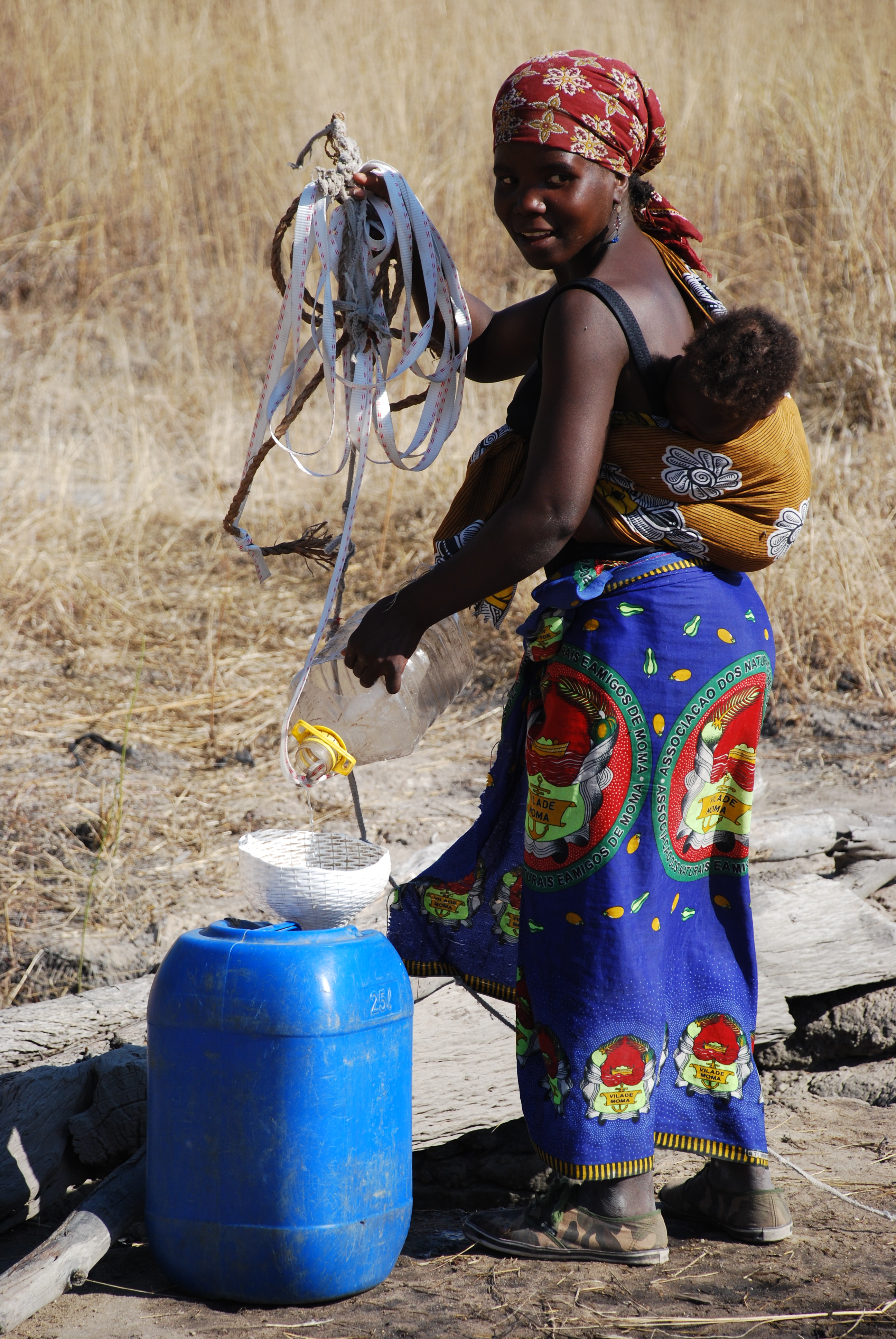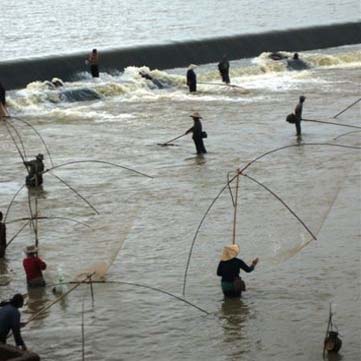'The Way Towards Rio+20' - speech by IUCN Director General
Mr Chairman, thank you for your invitation to address this important event and to contribute, on behalf of IUCN, to your deliberations over what should be Marseille’s message to the Rio+20 Conference.
I am very pleased to be here on the opening day of the World Water Forum - because I share your conviction that water - and putting to work solutions for water - is a fundamental, basic building block of sustainable development, of any transition to a green economy.
Without doubt, one message that must go from Marseille to Rio is therefore: do not overlook water! It has an unchallengeable place in – as the Zero Draft for Rio says – “The Future We Want.”
Water already speaks the language of Rio+20. Managing water well, using the solutions this Forum will showcase, means social inclusion, gender equity, economic opportunity, efficiency in resource use and biodiversity conservation. Water is the natural starting point for a green economy.
I was very fortunate to be asked to speak today to the opening plenary this afternoon, just before this event and would like, at this session, to build on what I said to the plenary. My main message there was that nature is a solution for water.
For any basin or aquifer, based on IUCN’s experience and results from the ground – nature is part of the infrastructure needed for water security and for development.
Governments, bankers, engineers – and indeed the conservation community too - need to take care to avoid locking ourselves into a mindset that says nature is a problem for development and a constraint that needs to be overcome. Nature is the basic infrastructure for all that we do.
On this basis, I want to take your challenge to me for this session – to talk about “the role of water in the conservation of natural resources” – and turn it on its head.
I don’t want to duck this issue. There is no question that it is critical. My IUCN colleagues and our Member governments and NGOs work worldwide on water management for this very purpose.
They have the tools for example to use scientific information to support agreement of ‘environmental flows’ – in which water is shared among multiple users, with nature getting its fair share.
However, there is a second and related issue that I think should be part of our message to Rio: this is the role of nature and of conservation in securing water resources. So, yes, water is vital to conserving nature – but so is nature to water security, and the economic benefits that this brings.
IUCN wants governments in Rio to clearly recognise this exact point: if there is going to be a green economy, nature will be at the centre of decision making because of the sound economic sense this makes.
IUCN’s position on the green economy in preparing for Rio+20 is that ‘nature-based solutions’ will lead to a more balanced global economy. We believe that it is high-time for countries to act collectively to reform the economy so that it supports – and does not undermine – poverty reduction, biodiversity conservation, ecosystem functions and sustainable development.
We are urging all governments to start making the transition towards a green economy, through:
• reforms of economic, planning, accounting, finance and infrastructure development
• phasing out or reforming all incentives and subsidies that are harmful to biodiversity and ecosystems services (Aichi Target 3)
• leadership in innovation, including by the private sector; and
• making full use of the solutions that nature offers to tackling the major global challenges we face – not least water, food security, climate change and biodiversity loss
I want to tell one story to show you what we believe this means in the real world – and what practical difference a green economy might make.
The Diama dam sits above the delta of the Senegal river. Built in the 1980s, the dam was designed to store water for irrigation and stop the influx of sea water upstream during the dry season. As part of agricultural development in the area, 375,000 hectares of irrigation were planned.
By 1994, the stark reality of the delta was very different. Just 44,000 hectares of the new irrigation scheme were in use. And below the dam, the ecology was transformed. What was before a rich and diverse source of livelihoods had become effectively a salt desert, because the delta was no longer flushed by the river. The ecology that existed before the dam was built had been an economic asset – but as we see so often around the world, people were blind to this.
Why is this blindness important? Because it means we lose -- we lose ecologically, we lose socially and we lose economically.
It meant that infrastructure engineered for agricultural intensification ended up degrading the natural infrastructure of the delta and the economy that it supported. People ended up poorer, less water secure and less food secure.
My story however, has a happy ending. Beginning in the mid 1990s, IUCN, the local communities and our partners in government in Senegal and Mauritania set out to find a solution. They worked with the operators of the dam to change the way the release of water from the dam was managed. They restored the annual flushing of the delta by flood waters.
By 1998, the fishery in the delta was back. People were grazing livestock again and women re-developing the artisanal weaving industry in the delta.
The point of this story is not that developing water infrastructure is bad. It is that leaving nature out of the planning and investment in river basin development is bad economics.
How then, could this story have been different in a green economy? Let’s imagine that the planners, bankers and engineers of the Diama dam were working not in the 1980s, but in the 2020s, after the Rio+20 conference set the course for a green economy.
Surely in a green economy, they will start their planning by asking what assets are already in place? They will count the natural capital and the benefits it brings. They will set their engineering plans for infrastructure alongside the natural infrastructure already there. They will ask what mix of built infrastructure and natural infrastructure is needed to meet the green economy goals of reducing poverty, development that is sustainable and conservation of biodiversity.
Surely, when they do that, they will quickly conclude that if building a dam is to be justified it will have to be managed – from day 1 – in ways that meet the needs of both people and nature.
They will not make the mistakes of the 1980s – and local people, the economy and nature will be better off for it.
IUCN has many lessons like the story of the Diama dam to share, here in Marseille, and in Rio.
We hope the message from Marseille to Rio will include nature as a solution for water. Sure, nature is a not a solution by itself, but it is an irreplaceable part of the package of water solutions that will help build a green economy.
We hope the World Water Forum will urge governments to support real investments in natural infrastructure and ecological restoration, as part of any package of investment for river basin development. When this is done, we believe ecosystems will be healthier, yes – but people will also have more water, food and energy security.
I look forward to seeing the results from Marseille put water - and nature - at the centre of agreement in Rio.
I also look forward to continuing this discussion after Rio – in September – at the IUCN World Conservation Congress in the island province of Jeju in the Republic of Korea, where we will be able to begin the process of building lasting impacts from Rio.
You will all be very welcome in Jeju.
Thank you.






